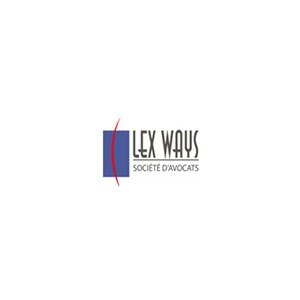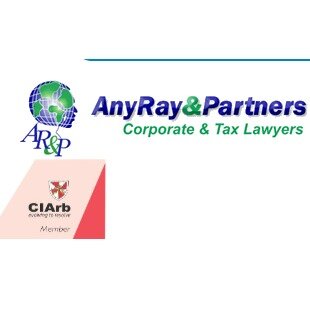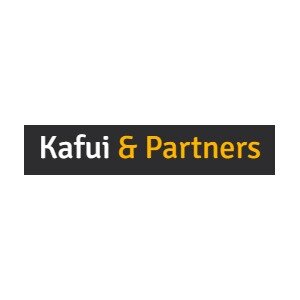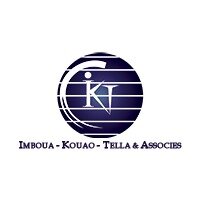Best Public-Private Partnerships (PPP) Lawyers in Ivory Coast
Share your needs with us, get contacted by law firms.
Free. Takes 2 min.
Or refine your search by selecting a city:
List of the best lawyers in Ivory Coast
About Public-Private Partnerships (PPP) Law in Ivory Coast
Public-Private Partnerships, known as PPPs, are collaborative agreements between the government and private sector entities to finance, construct, manage, and operate projects that provide public services or infrastructure. In Ivory Coast, PPPs are widely used in sectors like energy, transportation, healthcare, education, and water supply. These arrangements help the government leverage private sector expertise and funding to achieve development goals, stimulate economic growth, and improve public infrastructure. The country has established specific legislation and regulatory bodies to manage PPPs, ensuring that both the public interest and private investment are protected throughout the process.
Why You May Need a Lawyer
Seeking legal advice is vital when dealing with PPPs in Ivory Coast due to the complexity of contracts and strict regulatory framework. Common situations where legal help is needed include:
- Drafting, negotiating, or reviewing PPP contracts and agreements
- Participating in government tenders and bidding processes
- Ensuring compliance with local PPP laws and regulations
- Conducting due diligence before investing or partnering in a PPP project
- Handling disputes between public and private parties
- Understanding risk allocation and financing mechanisms
- Dealing with land acquisition or environmental assessments
- Accessing government incentives or guarantees
A lawyer with expertise in PPP law will help you navigate these processes, safeguard your interests, and ensure your project adheres to all legal requirements.
Local Laws Overview
Ivory Coast has developed a robust legal and institutional framework for managing PPPs. The main legislation governing PPPs is the law adopted in 2012, which has since been revised and supplemented by various decrees and regulations. Here are key aspects of local laws relevant to PPPs:
- PPP contracts must align with national development plans and receive relevant approvals from government authorities
- A dedicated PPP Unit within the Ministry of Economy and Finance oversees the preparation, negotiation, and implementation of PPPs
- The legal framework defines eligible sectors, procedures for selecting private partners, contractual models, and dispute resolution mechanisms
- Transparency, fair competition, and public interest protection are emphasized throughout the PPP process
- The law defines types of PPP contracts such as Build-Operate-Transfer (BOT), Build-Own-Operate (BOO), and similar variants
- Environmental and social impact assessments are often required
- Fiscal incentives and government guarantees may be available, subject to strict regulation
- Foreign investors are generally welcome, but there may be requirements related to local content or majority participation in certain sectors
- Legal recourse and dispute resolution mechanisms are provided by national laws, often including arbitration clauses
Frequently Asked Questions
What is a Public-Private Partnership (PPP) in Ivory Coast?
A PPP is a formal arrangement between a public authority and a private company to finance, develop, and manage public infrastructure or services, usually through long-term contracts that share responsibilities, risks, and rewards.
Which sectors commonly use PPPs in Ivory Coast?
PPPs in Ivory Coast are prevalent in energy, transportation, education, healthcare, water supply, sanitation, and housing sectors.
Who regulates PPPs in Ivory Coast?
The PPP Unit within the Ministry of Economy and Finance is the main regulatory authority. Other sector-specific ministries and agencies may also play a role, depending on the project.
What types of PPP contracts are available?
Common types include Build-Operate-Transfer (BOT), Build-Own-Operate (BOO), Design-Build-Finance-Operate (DBFO), and service contracts, among others.
How can I participate in a PPP project?
Participation usually involves responding to government tenders or unsolicited proposal calls, undergoing vetting by the PPP Unit, and negotiating contract terms once selected.
What protections exist for private investors?
The legal framework ensures transparency, allows for fair dispute resolution, and provides for government guarantees or incentives in certain cases.
Are there any special requirements for foreign investors in PPPs?
Foreign investors can participate, but may need to fulfill local content requirements or partner with Ivorian firms in certain strategic sectors.
How are disputes resolved in PPP projects?
Disputes can be resolved through negotiation, mediation, or arbitration, according to procedures defined in the PPP contract and in compliance with national laws.
What are the main risks in PPP projects?
Risks may include political changes, regulatory shifts, financial viability, land acquisition delays, and force majeure events. Contracts usually allocate these risks among parties.
Why is legal advice necessary for PPP projects?
Due to complex regulations, long contract durations, and significant financial stakes, legal advice is essential to ensure compliance, protect interests, and manage risks throughout the project lifecycle.
Additional Resources
For additional information and support on PPP legal matters in Ivory Coast, consider the following resources:
- PPP Unit, Ministry of Economy and Finance: The main government body overseeing PPPs
- Chamber of Commerce and Industry of Ivory Coast: Provides networking and legal information for businesses involved in PPPs
- Sectoral ministries, such as the Ministry of Infrastructure or Ministry of Health, for project-specific regulations
- Ivorian Bar Association for finding qualified PPP lawyers
- Development partners such as the World Bank or African Development Bank for financing and guidelines
Next Steps
If you are considering participating in or advising on a PPP project in Ivory Coast, follow these recommended steps:
- Familiarize yourself with the Ivorian PPP legal framework and requirements
- Clearly define your project goals and ensure they align with national development priorities
- Consult with a qualified lawyer experienced in PPPs and Ivorian law
- Prepare all necessary documentation, including business plans, financial models, and compliance records
- Engage with the PPP Unit and relevant sectoral ministries early in the process
- Participate in public tenders or initiate discussions for unsolicited proposals as permitted by law
- Negotiate contract terms carefully, ensuring that all risks, obligations, and dispute resolution clauses are clear
- Continue to consult your lawyer during project implementation to manage compliance and address any legal issues as they arise
A methodical approach, supported by legal expertise, will help you navigate the PPP landscape in Ivory Coast effectively and increase your chances of project success.
Lawzana helps you find the best lawyers and law firms in Ivory Coast through a curated and pre-screened list of qualified legal professionals. Our platform offers rankings and detailed profiles of attorneys and law firms, allowing you to compare based on practice areas, including Public-Private Partnerships (PPP), experience, and client feedback.
Each profile includes a description of the firm's areas of practice, client reviews, team members and partners, year of establishment, spoken languages, office locations, contact information, social media presence, and any published articles or resources. Most firms on our platform speak English and are experienced in both local and international legal matters.
Get a quote from top-rated law firms in Ivory Coast — quickly, securely, and without unnecessary hassle.
Disclaimer:
The information provided on this page is for general informational purposes only and does not constitute legal advice. While we strive to ensure the accuracy and relevance of the content, legal information may change over time, and interpretations of the law can vary. You should always consult with a qualified legal professional for advice specific to your situation.
We disclaim all liability for actions taken or not taken based on the content of this page. If you believe any information is incorrect or outdated, please contact us, and we will review and update it where appropriate.
Browse public-private partnerships (ppp) law firms by city in Ivory Coast
Refine your search by selecting a city.












